VolViewer: Difference between revisions
No edit summary |
No edit summary |
||
| Line 2: | Line 2: | ||
=<span style="color: Navy">What? How? Where?</span>= | =<span style="color: Navy">What? How? Where?</span>= | ||
[[Image: | [[Image:EarlyLeavesVolviewer.jpg|256px|thumb|VolViewer fast 3D image '''volume viewer''', also on '''stereo''' monitor. Stand-alone or a slave viewport for '''Matlab''' and other systems or server-side for '''OMERO'''.]] | ||
<span style="color: Navy">'''What'''?</span> VolViewer is used for''' viewing volume images''' from, for example, '''confocal''' microscopy or optical projection tomography ('''OPT'''). VolViewer provides tools for making measurements in three dimensions. It also makes 'cool' movies such as fly-throughs. <br> | <span style="color: Navy">'''What'''?</span> VolViewer is used for''' viewing volume images''' from, for example, '''confocal''' microscopy or optical projection tomography ('''OPT'''). VolViewer provides tools for making measurements in three dimensions. It also makes 'cool' movies such as fly-throughs. <br> | ||
Revision as of 11:06, 3 March 2012
What? How? Where?
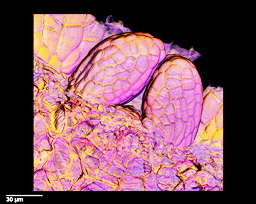
What? VolViewer is used for viewing volume images from, for example, confocal microscopy or optical projection tomography (OPT). VolViewer provides tools for making measurements in three dimensions. It also makes 'cool' movies such as fly-throughs.
Features:
- Real-time volume rendering using an optimized 3D texture slicing algorithm.
- Provides a 3D viewer service to other systems, e.g. Matlab, 'C', Python, etc.
- Interactive transfer functions to independently adjust opacity and intensity for up to three data channels.
- Real-time per channel thresholding, brightness and contrast operators.
- On-the-fly gradient computation for local illumination.
- Iso-surface computation with surface smoothing.
- Section viewing in any orientation / position.
- Real-time volume clipping.
- 3D measurements, filters & segmentation.
- Cool movies interpolation between zooms, pans, brightness/contrast.
- Stereo rendering using either quad buffer or anaglyph mode. (Requires nvidea quadro board or equivalent and 3D display.)
How? It is open source and written in C++ using OpenGL and Qt.
Where? Binaries are available for the PC, Mac and Linux, see below. Requirements: An OpenGL 2.1 / GLSL 1.20 compatible GPU with a recomended 512MB of memory.
User Documentation
- Tutorial on dealing with proprietory file formats (BioformatsConverter)
- Tutorial on loading and saving data
- Tutorial on user interface
- Tutorial on exploring data
- Tutorial on high quality projections and movies
- Tutorial on filters, quantification, segmentation and scripting
- Matlab interface and Scripting in more detail
Sample Data
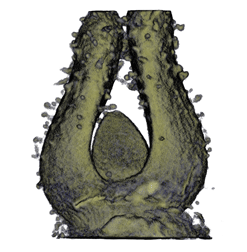 |
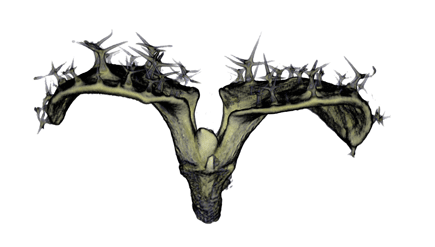 |
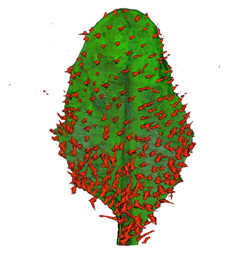 |
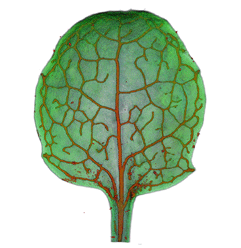
|
| Antirinhium Meristem | Arabidopsis Seedling | Arabidopsis Leaf (GL2:GUS expression in red) | Arabidopsis Leaf (Ath8:::GUS expression in red) |
| Download | Download | Download | Download |
* all data courtesy of Karen Lee [1]
Download
Although we try to keep up to date builds these sometimes lag behind the SVN trunk. So if you want the latest version / features, it is best to build the application from the trunk of the SVN. The build system is based on qmake for easy cross platform compilation.
| Windows (32bit) | Windows (64bit) | Linux | MacOS X (i386/x86_64/10.5+) |
Note that for the windows versions you will need to install the corresponding Microsoft Visual C++ 2010 SP1 Redistributable Package which can be found here: 32bit and 64bit.
Source Code
Public SVN: https://cmpdartsvr1.cmp.uea.ac.uk/banghamlabSVN/VolViewer/
Building from source
Media/Press
VolViewer has appeared in the following:
Front cover: Handbook of Plant Science | Front cover: The Plant Cell | Royal Microscopical Society: Infocus Magazine | Bundled with the Bioptonic 3001 scanner: Bioptonics Viewer | The Guardian newspaper: 3D Fruit fly | Qt Ambassador program | Triffid Nurseries website
Author
- Dr Jerome Avondo Supported by the BBSRC through UEA Computing School and JIC.